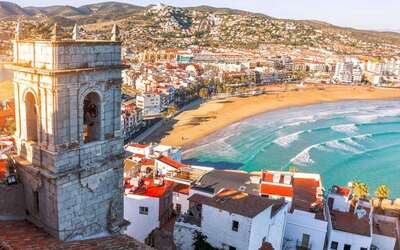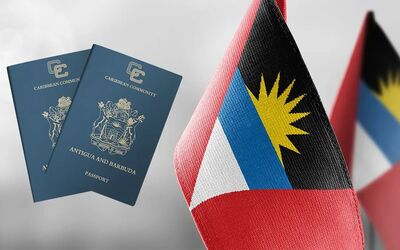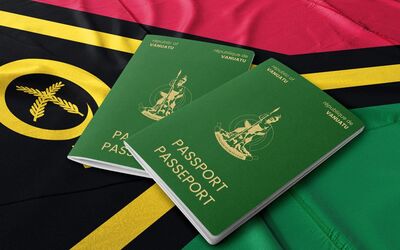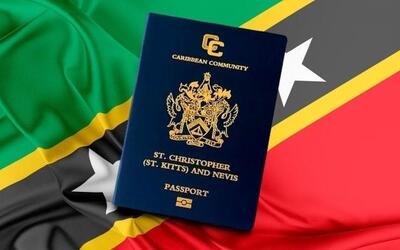Spain has followed the example of neighboring Portugal and opened a new route into the country for remote workers, freelancers and entrepreneurs. This is essentially a digital nomad visa, and that's what we'll call it later in this article for the sake of simplicity, but keep in mind that it doesn't officially go by that name, and is one of the measures of the Startup Act of 2022. This law aims to develop the Spanish economy and tourism by attracting entrepreneurs and wealthy professionals to the country who can work remotely.
Who can get a new visa?
The Spanish Digital Nomad Program is available to non-EU and non-EEA citizens who work remotely or freelance for companies outside of Spain. Entrepreneurs who want to start their own business in Spain using income earned outside the country can also apply for a visa. Please note that only those who have not been a resident of Spain within the last five years can apply.
If you plan to live in Spain with your family, get a visa that will depend on yours and be valid for the same period. The requirements for this visa may vary depending on the person you are related to and their age.
What are the requirements?
To qualify for a digital nomad visa, applicants must have a monthly income of at least €2,332 and health insurance with coverage in Spain. You will also need to provide a certificate of no criminal record from your country of origin and proof of residence in Spain, such as a rental agreement.
In addition, you must prove that you have at least three years of work experience in the field in which you currently earn income, or a diploma in a relevant specialty. You will also need a bank statement confirming that you have at least €25,000 for expenses during your first year of living in Spain. If your family is moving with you, you must have an additional €9,441 in your account for each family member.
Applicants must demonstrate that they work freelance or remotely or provide a business plan if they intend to start a new business in Spain.
Read also: Tax Guide | Spain
What are the benefits of a nomad visa?
- The digital nomad visa allows you to live and work in Spain for up to five years without the need for a work permit.
- Visa holders have access to the Spanish healthcare system and other social benefits, such as the ability to enroll children in public school.
- Another important advantage is the ability to travel freely within the Schengen area. Spain is in the heart of Europe and is an excellent base for traveling to countries such as France, Italy, Portugal and Germany. Thanks to efficient local transport systems, including high-speed trains and low-cost air travel, digital nomads can easily travel around Europe for work or pleasure.
- The new visa gives you the chance to get acquainted with Spanish culture, learn the language and make new friends in the local community. You may not even want to travel as often as before, because Spain is known for its rich history, art and architecture, and each region has its own unique traditions, cuisine and way of life.
- Spain's favorable climate, with warm temperatures and plenty of sunny days a year, makes it an ideal destination for those who enjoy outdoor activities such as hiking, cycling or water sports. Spain boasts some of the most beautiful beaches in the world, as well as picturesque mountains. The options for recreation and entertainment within the country are almost limitless.
- The Spanish Digital Nomad Visa can provide a sense of stability for those currently looking for a safe and tranquil environment to live and work. Spain is a country with a strong economy and a high standard of living, which makes it attractive not only for holidays, but also for business. With the recently passed Startup Law, Spain has once again demonstrated its commitment to supporting digital nomads and remote workers, and its willingness to provide resources and assistance to those who want to live in the country.
How to apply?
You can apply for a digital nomad visa online through the Spanish consulate in your country of origin or country of residence. Applicants must provide all required documents, including proof of income, health insurance, and a rental or home purchase agreement. To confirm income, you can use any relevant documents: a contract with an employer, a contract for an individual, pay stubs, bank statements or tax returns. The main thing is that the source of this income is outside Spain.
The visa application fee is €60. You also need to include health insurance for the first year in your expenses. Its cost on average ranges from €60 to €100 per month.
Review of the application takes 20 working days.
Read also: New Portuguese visa for digital nomads, complete guide
What are the differences between the Spanish and Portuguese nomad programs?
Both the Spanish and Portuguese programs are aimed at attracting remote workers and freelancers to the country, however the Spanish visa has a longer validity and allows you to live in the country for up to five years, compared to the maximum two-year stay in Portugal. In addition, Spain does not impose a minimum period of stay in the country to maintain a visa, while in Portugal you must spend at least 183 days a year to maintain your status. This means that the Portuguese program obliges remote workers and digital nomads who choose this type of visa to become tax residents of the country. Another difference is the lower monthly income requirements in Spain: €2,332 per applicant versus €2,820 in Portugal.
On the other hand, the Portuguese program has several unique advantages. First, Portugal offers tax breaks for new qualified residents, meaning that eligible visa holders can receive a 10-year tax break on some sources of income earned outside of Portugal. You can find more information about Portuguese taxes and the NHR regime here.
Secondly, Portugal may be more attractive to those looking for a calm and relaxed lifestyle, as this may be difficult to find in Spain's bustling cities.
Spain and Portugal share a number of advantages, such as access to public healthcare and education. Both countries are also known for their vibrant culture, beautiful landscapes and delicious cuisine. Ultimately, the choice will depend on your tax expectations and individual preferences, such as language, location and lifestyle.
Contact us today if you are unsure which country or program to choose
Use the "Call me back" button at the top of this page or write to us in one of the messengers to sign up for a free consultation with an expert: Telegram, WhatsApp.








